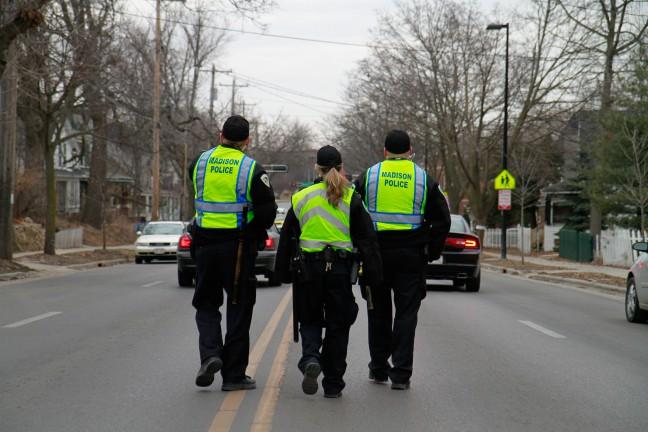Madison has seen an uptick in robberies through the first two months of 2018, including three bank robberies at the Associated Bank on Monroe Street in February alone.
According to a blog post from Madison Police Department Chief Mike Koval, Madison had 38 reported robberies in January and February, a 5 percent increase when compared to the four-year average. Although February 2018 has seen one fewer robbery compared to February 2017, three of these robberies were committed at the Associated Bank on Monroe street and were connected to two separate bank robbery sprees spanning across Madison.
MPD spokesperson Joel DeSpain said investigations into the robberies are ongoing but MPD is confident about who the suspects are. A third suspect was recently arrested in connection with the robberies.
In April 2017, Koval said Madison has transitioned into a big city and therefore faces the types of crimes big cities like Chicago face, specifically unprecedented rates of weapons violations.
The Badger Herald reported in January an estimated 226 cases of shots fired in Madison in 2017, a 65 percent increase from 2016, as well as one of its highest homicide numbers in years.
Ald. Zach Wood, District 8, said during his time on City Council, robberies have been fairly cyclical, meaning they rise and fall in certain months and in certain years. Regardless, Wood added any uptick in crime is concerning to the Council and addressing it has been important.
The City Council is working on addressing Madison’s “big city” problems, Wood said.
“We do have more police this year, but we’re also working on community development programs around the city to try to tackle these things on both ends,” Wood said.
As part of these new community development programs, the Council approved nearly $1.5 million in funding for youth and adult employment opportunities as part of their 2018 budget.
Most of the youth programs which were funded place young, at-risk people in jobs with strong mentoring relationships. For instance, $260,000 was allocated to Operation Fresh Start, a nonprofit which “provides a path forward for disconnected youth in Dane County” through education, mentoring and employment training, according to the organization’s website.
Adult employment opportunities include programs like Common Wealth Development’s Southwest Transitional Employment Program, which employs those in desperate need of stable income with short-term jobs. Similarly, the City Council afforded $85,000 to Madison Area Urban Ministry’s Just Bakery program, which places those with significant barriers to employment, like homelessness or a criminal record, in a 16-week culinary arts program.
Koval has recognized the need for these types of community programs, saying traditional policing cannot solely contend with the rates and types of crime Madison is seeing. In an effort to include the community in policing conversations, MPD started hosting forums in February where residents could discuss crime trends and policing initiatives with members of the police force.
“There’s always new stuff we’re trying … because you always want to try to be able to deal with these things as they come up instead of having to be reactive all the time,” Wood said. “We’re trying to approach violence as a public health perspective instead of a criminal perspective.”


